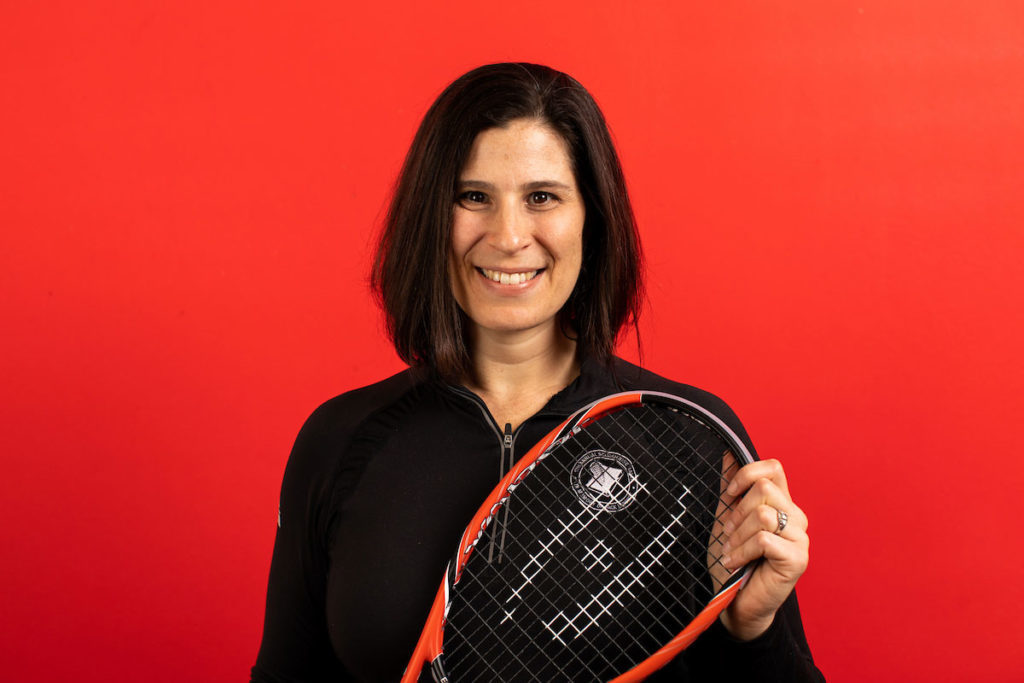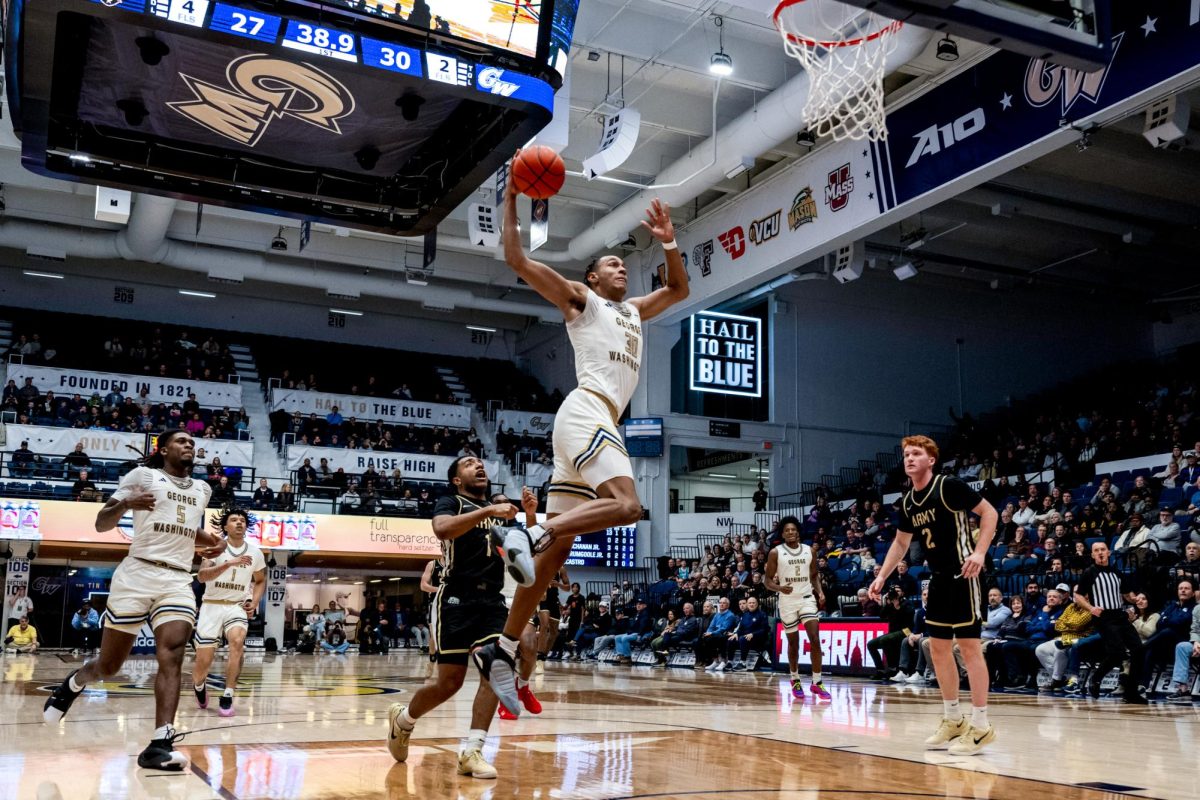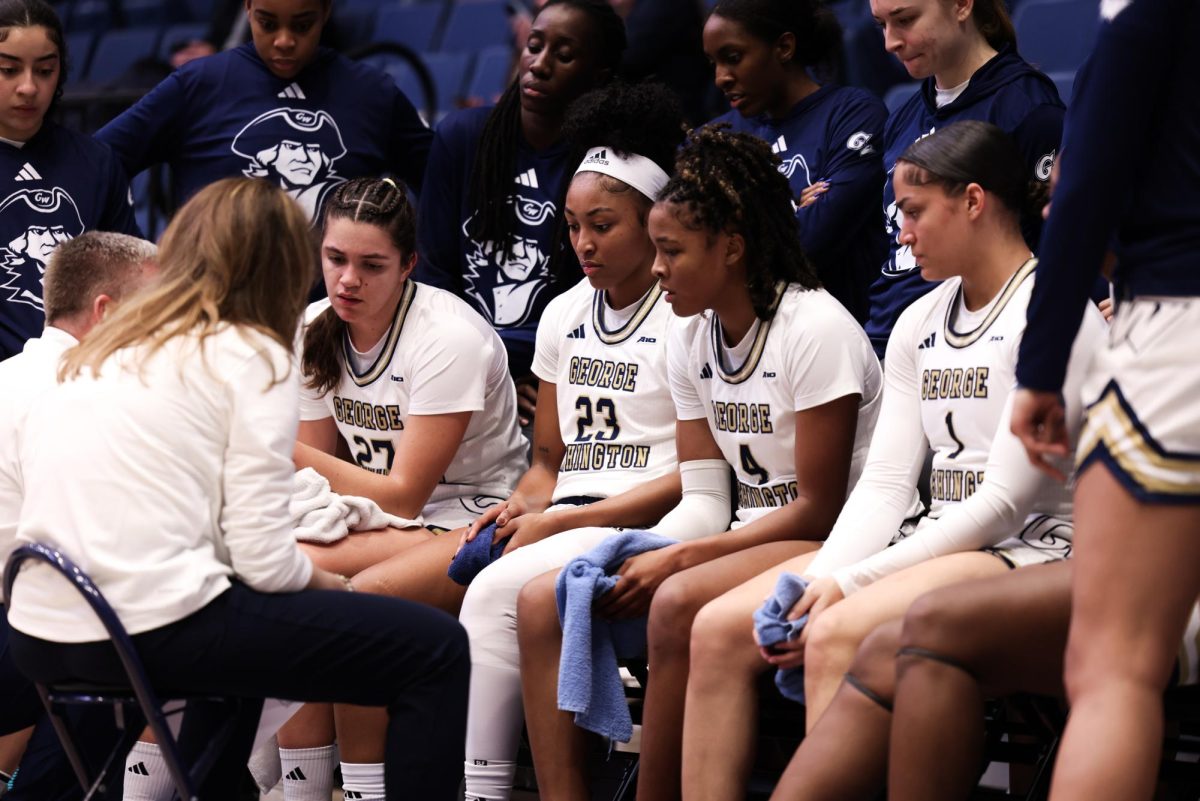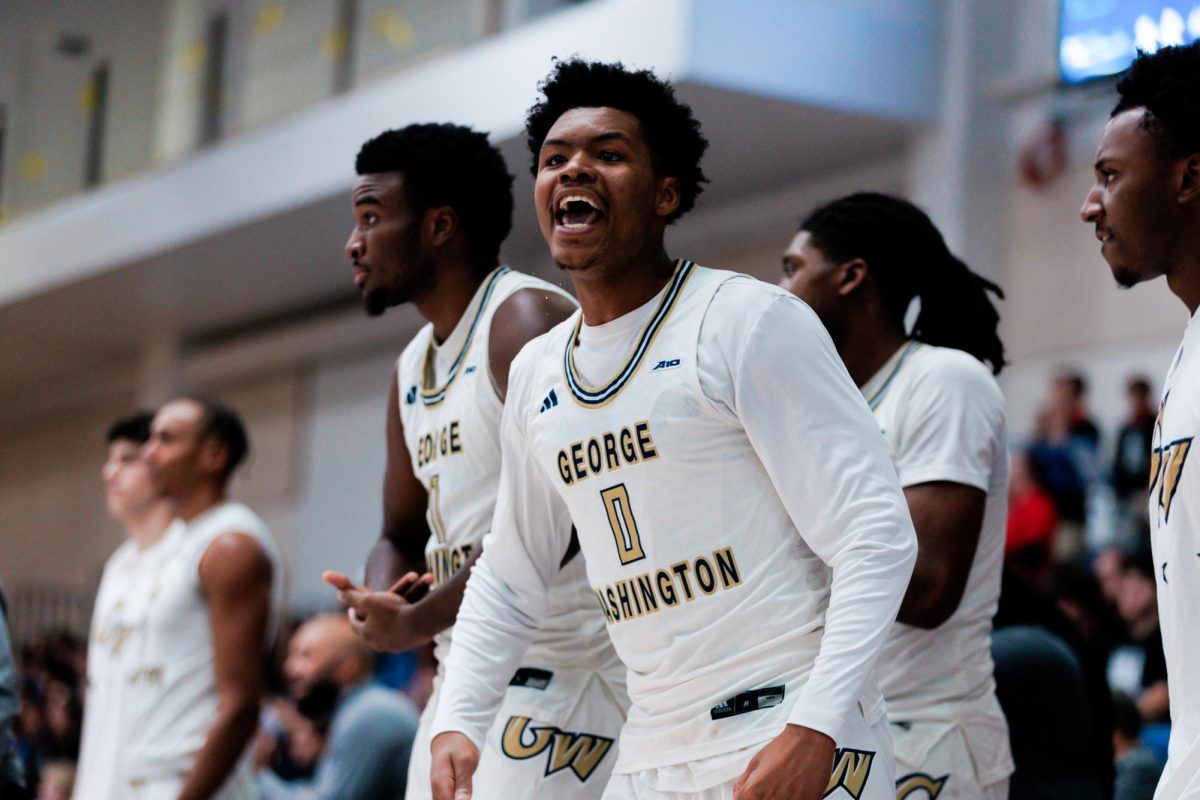Updated: Oct. 22, 2018 at 9:32 p.m.
When Abby Markoe was deciding whether to continue pursuing her doctorate degree at Johns Hopkins University or to go all-in on the nonprofit organization she had been building up for years, she picked up the phone and called her former squash coach at GW.
Markoe had taken a temporary leave of absence from her program to start SquashWise, an organization that promotes higher education opportunities to middle school and high school students in Baltimore through squash.
“It was definitely a risk because I was already on this path to become an academic and to be a professor,” Markoe said.
She reached out to Sarah West, who coached Markoe as a senior in the women’s squash program’s inaugural year, for advice. With advice from her former coach, Markoe decided to push forward with SquashWise and has served as its executive director for more than a decade.
“It was just so clear by how much she loved what she was doing and the reward she found with the kids that it was the right thing to do,” West said.
After 10 years, SquashWise now provides almost 100 students in Baltimore with academic resources to help them pursue an education while teaching them the game of squash. The organization meets with students two to four days a week for a mix of squash practice and academic tutoring and mentoring and supports its graduates through the age of 25.
“Squash has opened major opportunities and major doors for me,” Markoe said. “To be able to help them access those opportunities as well is really important and special to me.”
SquashWise is a member program of the Squash + Education Alliance, the organizational body that creates rules, guidelines and best practices for SquashWise and other similar organizations.
“She’s a dynamo,” Tim Wyant, the executive director of the Squash + Education Alliance, said. “Incredibly bright, determined, organized and committed to the mission.”
The program does not have its own building or squash courts yet, so they use spaces in the city, including Meadow Mill Athletic Club and the squash courts at Johns Hopkins, which houses a Division III program.
Markoe and her team use the sport as a “hook” to introduce students to the importance of furthering academics, even though it is a sport very few of the students have ever heard of before. Students are selected through tryouts based off their curiosity, ambition and potential, Markoe said.
High school squash tends to be played as an individual rather than in a team setting like it is in college. There are no squash teams in Baltimore’s public high schools, but many colleges across the country have varsity squash teams.
“Squash is uniquely well-positioned to introduce our students to a different world because of its deep ties to higher education and communities where opportunities are abundant,” Wyant said.
When Markoe first came to GW as a freshman in the fall of 1999, the University only offered a men’s club squash team.
But she got her opportunity to pick up the racquet again at GW after a chance encounter with then-University President Stephen Joel Trachtenberg. When she told Trachtenberg she wanted to play squash but did not have the opportunity to, Trachtenberg said he would “make a phone call,” according to Markoe.
“He made a couple calls the next day and I was then told I’d be welcome to play,” Markoe said.
She was the only woman on the men’s club squash team that year. When the varsity women’s squash program began in 2003, Markoe joined and served as a co-captain of the squad during her senior year under first-year head coach West.
“As an individual, she was an exceptional student, really dedicated and hard-working,” West said.
Now Markoe brings students from SquashWise to Foggy Bottom at least once a year to play with members of the men’s and women’s squash programs, hear about their college experience and tour GW’s campus. She said she would “love” to have one of her students attend GW someday.
“I played varsity,” Markoe said. “I’m not a very serious, very competitive squash player, I’m recreational still but it’s been a huge part of my life and career.”





